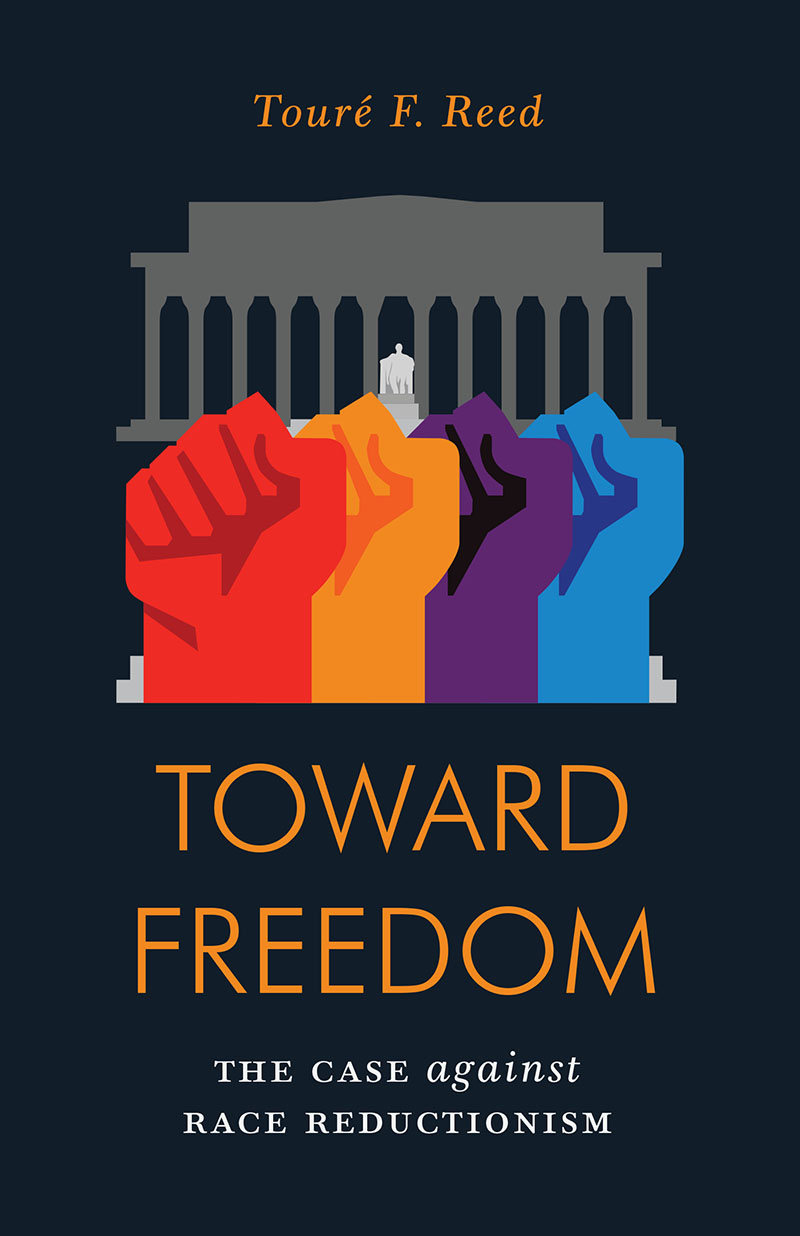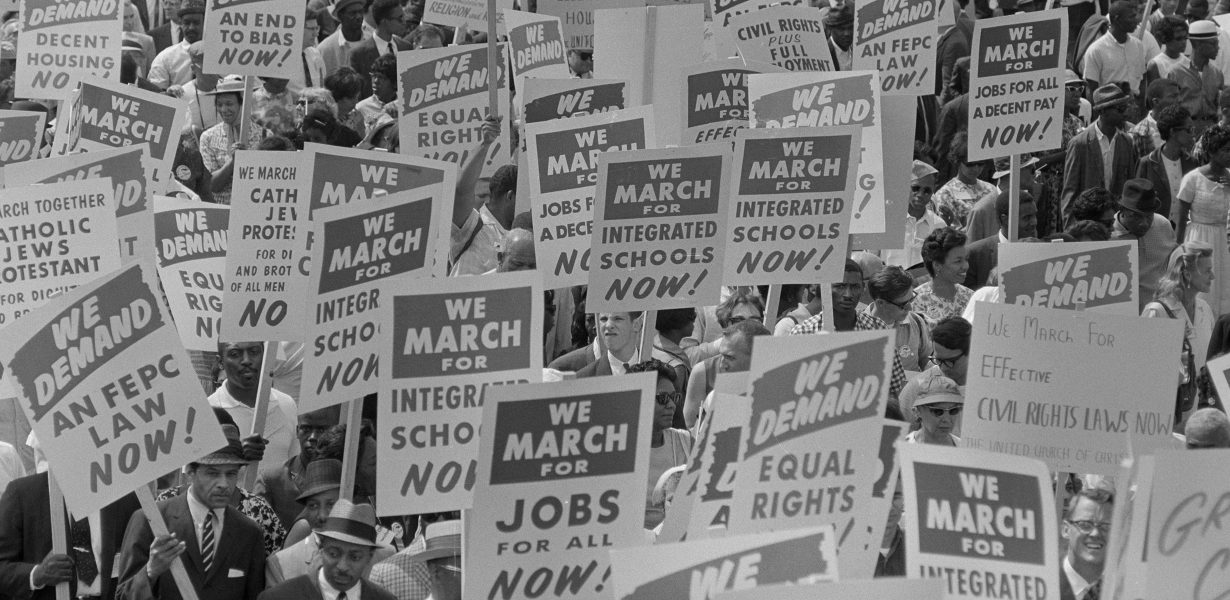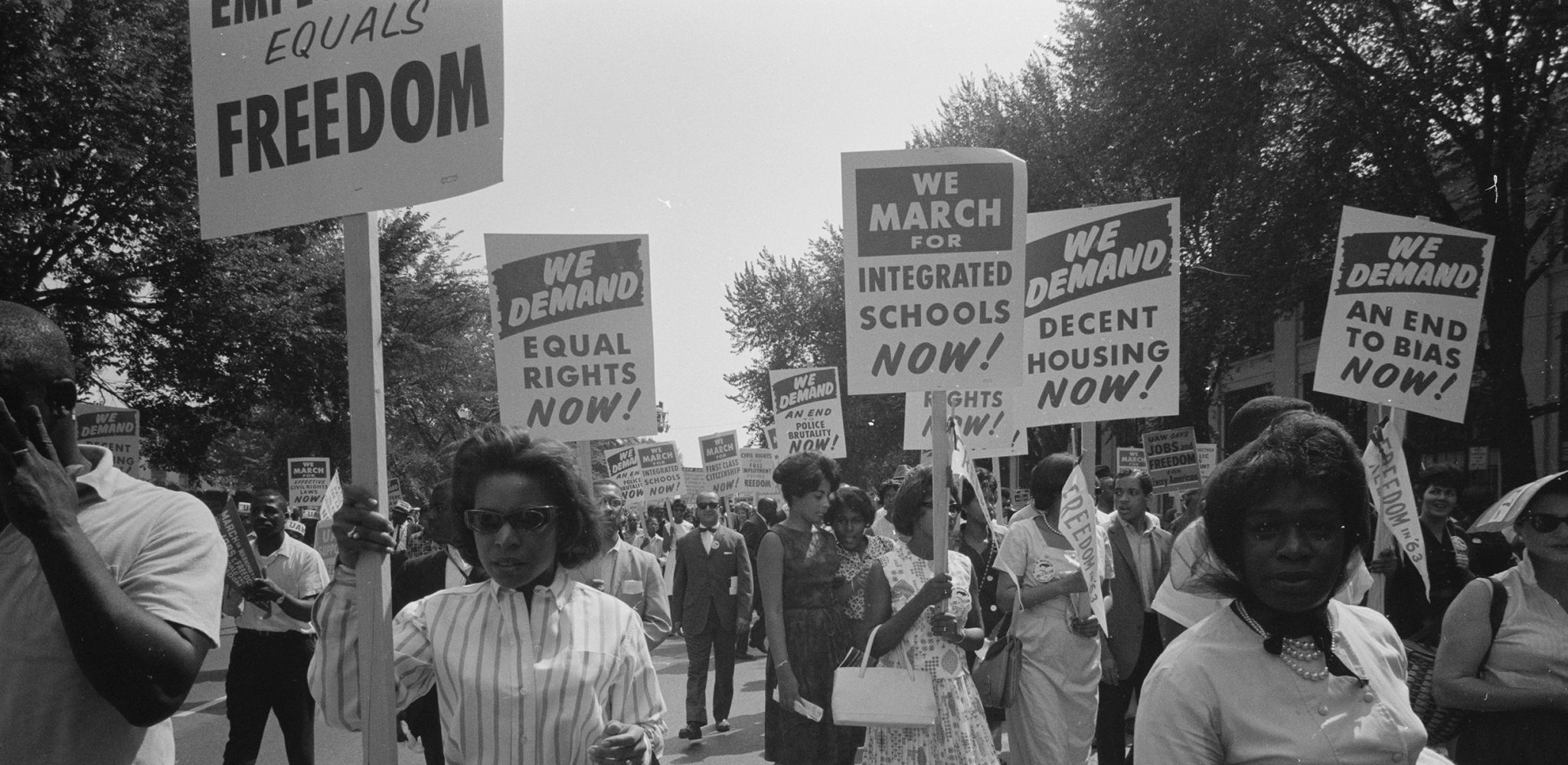Toward Freedom explains how our understanding of racial disparities became abstracted from the political-economic forces that generate them
US Democratic presidential candidate Joe Biden recently attracted criticism when he exclaimed at the end of an interview on US radio show The Breakfast Club, “If you have a problem figuring out if you’re for me or Trump, then you ain’t black”. Host Charlamagne tha God shot back, “It don’t have nothing to do with Trump, it has to do with the fact – I want something for my community”.
However spontaneous and unplanned, the exchange typifies much of the way race, politics and economics is understood and lived in the US (and elsewhere). Arguments over the nature and causes of racial inequality are now often violently polarised, and ethnic and racial identity has become a cultural and political fault line. Concepts of white supremacy, white privilege and systemic and institutional racism have become popular in understanding why black and brown people continue to lose out against white peers, in income, employment, housing and social mobility. And as identarian views of social divisions have become more popular, what Touré F. Reed refers to as political economy – the analysis of social divisions based in the relations of working people to capital – has moved to the fringes of leftwing and progressive politics.

It’s encouraging, then, to read Reed’s lucid historical analysis of the evolution of US class and race politics, from the New Deal era of the 1930s and 40s, through the civil rights years of the 50s and 60s, to the neoconservative reaction of Reaganomics in the 80s and the present era of neoliberalism – a period overseen by Democratic administrations as much as Republican ones. Reed agrees that Democrats – from Kennedy to Obama – ‘have unquestionably failed to address the structural sources of racial disparities’. But rather than conclude – as more pessimistic post-Obama progressives such as the influential commentator Ta-Nehisi Coates have done – that economic redistribution policies simply failed to engage with the entrenched power of ‘systemic racism’, Reed argues that Democrats have often gone along with accepting neoliberal economic tenets, while tending ‘to abstract racial disparities from the political-economic forces that generate them’.

Toward Freedom is an intricate account of the conservative drift in liberal thinking and policy from the Great Depression to the current moment. Throughout, Reed examines how antiracist demands were continuously isolated from broader demands for economic reforms that would coalesce the interests of working-class Americans to endanger capital. What Reed finds is that the evolution of identitarian notions of ethnic group-identity has become the way political representation is understood, even while, as he bleakly observes, deindustrialisation and its neoliberal aftermath have destroyed wages and narrowed opportunities for working-class and middle-class Americans, regardless of race. Reed is scathing when it comes to the ‘postracial’ agenda of America’s first black president. ‘At its core,’ he writes, ‘postracialism was a reactionary fantasy. President Obama… presumed that since the victories of the modern civil rights movement had swept aside the formal racial impediments to black equality, lingering inequality had less to do with extant prejudice than slow economic growth, racism’s historic legacy and, crucially, the cultural deficiencies of poor African Americans themselves.’

As Reed notes, ‘Obama’s presidency would exert little positive influence over racial disparities.’ But, notably, Reed also takes issue with Coates, one of the most prominent critics of postracialism, who in recent years has been at the forefront of the demand for a specifically race-oriented economic policy of reparations. Reed sees Obama’s quiescent acceptance of the neoliberal economic status quo, and Coates’s ‘conceptualization of racism as the engine of history’, as two sides of the same failure of political thinking on how economic divisions refract and reinforce racial ones – what Reed typifies as ‘race reductionism’.

Reed’s analysis is a much-needed counter to increasingly divisive, identity-driven accounts of why social inequalities persist between groups. Biden, of course, was insinuating that black Americans should align themselves, as an ethnic group, against a performatively racist and xenophobic president, regardless of what Democrats might do for working people. Meanwhile, Charlamagne tha God only wants to know what supporting the Democrats will do for ‘my community’. ‘The bottom line’, Reed concludes, ‘is that the fate of poor and working-class African Americans – who are unquestionably overrepresented among neoliberalism’s victims – is linked to that of other poor and working-class Americans.’
